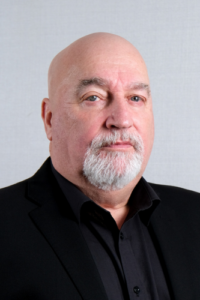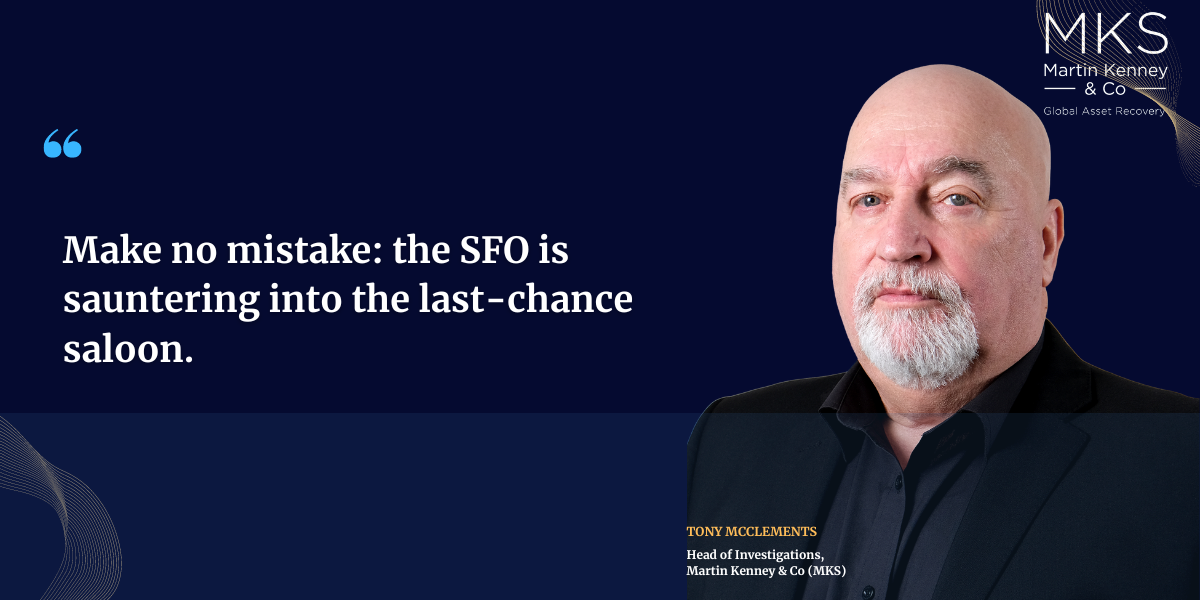Tony McClements welcomes news that the head of the Serious Fraud Office (SFO) is stamping his authority on an organisation that has long been bereft of leadership.
As the UK’s flagship counter fraud and anti-corruption organisation, the Serious Fraud Office (SFO) has suffered a number of setbacks over recent years. Many of these are self-inflicted, with poor leadership and a culmination of schoolboy errors leading to failings that quite simply beggar belief.
Under the tenure of the previous head, former FBI lawyer Lisa Osofsky, the SFO appeared to lack direction and ultimately fell into disrepute. The new head Nick Ephgrave is a former high-ranking police detective. His appointment has been welcomed by many who, like me, hope that his extensive law enforcement background will breathe new life into the troubled organisation.
The UK is currently besieged by fraud, accounting for 41% of all reported crime and £4.7 billion in losses (according to Home Office estimates). As fraud is notoriously underreported, that figure is inevitably going to be much higher. Of that 41%, less than 1% receives any policing resources and attention. This means that the SFO must take the lead and regain its “flagship” position and prove itself to be an effective law enforcement agency.
The UK is currently besieged by fraud
Make no mistake: the SFO is sauntering into the last-chance saloon. There is no wiggle room left. If it continues to fail, then I can only foresee its demise, probably as it is absorbed into the National Crime Agency (NCA).
Meanwhile, adverse publicity will continue to come for some time yet. Nick Ephgrave has inherited an organisation with cases that continue to prove problematic, through which he must navigate and conduct damage limitation exercises.
What he will bring to the table is much-needed pragmatism. For too long, the SFO has insisted on “flogging dead horses” (bad cases) rather than accepting that successful prosecutions are unlikely and moving on. There is no disgrace in commencing an investigation based on initial information, then pulling the plug when a conviction looks unlikely.
The SFO, like the rest of UK law enforcement, has only finite resources: common sense must prevail. During a recent speech at the Royal United Services Institute (RUSI), Mr Ephgrave said: “The SFO will be bolder, pragmatic, more proactive… This means not being afraid to close investigations which have limited chance of progressing to charge, so that resource can be moved to other cases.”
Make no mistake: the SFO is sauntering into the last-chance saloon
I am convinced that staff at the SFO will find this policing approach to a law enforcement problem refreshing. It will invigorate what can be seen as a mundane form of investigation. The future for the SFO has become a little brighter these last few days, but overall the fraud picture remains bleak here in the UK. If you add to this mix significantly high values of loss, and multi-jurisdictional and cross-border elements, the chances of being supported by law enforcement diminish even further.
Police forces do not have the resources and, in some instances, expertise to undertake complex fraud investigations. That is why greater numbers of fraud victims are turning to avenues such as private criminal prosecutions. These investigations and prosecutions are becoming more commonplace.
Like other law firms, we are responding to this demand and have put together a formidable team of specialist lawyers, ex-law enforcement investigators (including fraud squad detectives), forensic accountants, plus analysts experienced in supporting police investigations.
Greater numbers of fraud victims are turning to avenues such as private criminal prosecutions
It is unfortunate that the UK has found itself in the lamentable position it has with regards to fraud. Members of the public should be able to expect a response from law enforcement when they have fallen victim to this crime. Sadly, this is no longer the case, but one can hope that under its new stewardship, the SFO can at least make some headway against this tide.
 Tony McClements is Head of Investigations at Martin Kenney & Co (MKS), a global asset recovery litigation practice based in the British Virgin Islands.
Tony McClements is Head of Investigations at Martin Kenney & Co (MKS), a global asset recovery litigation practice based in the British Virgin Islands.

